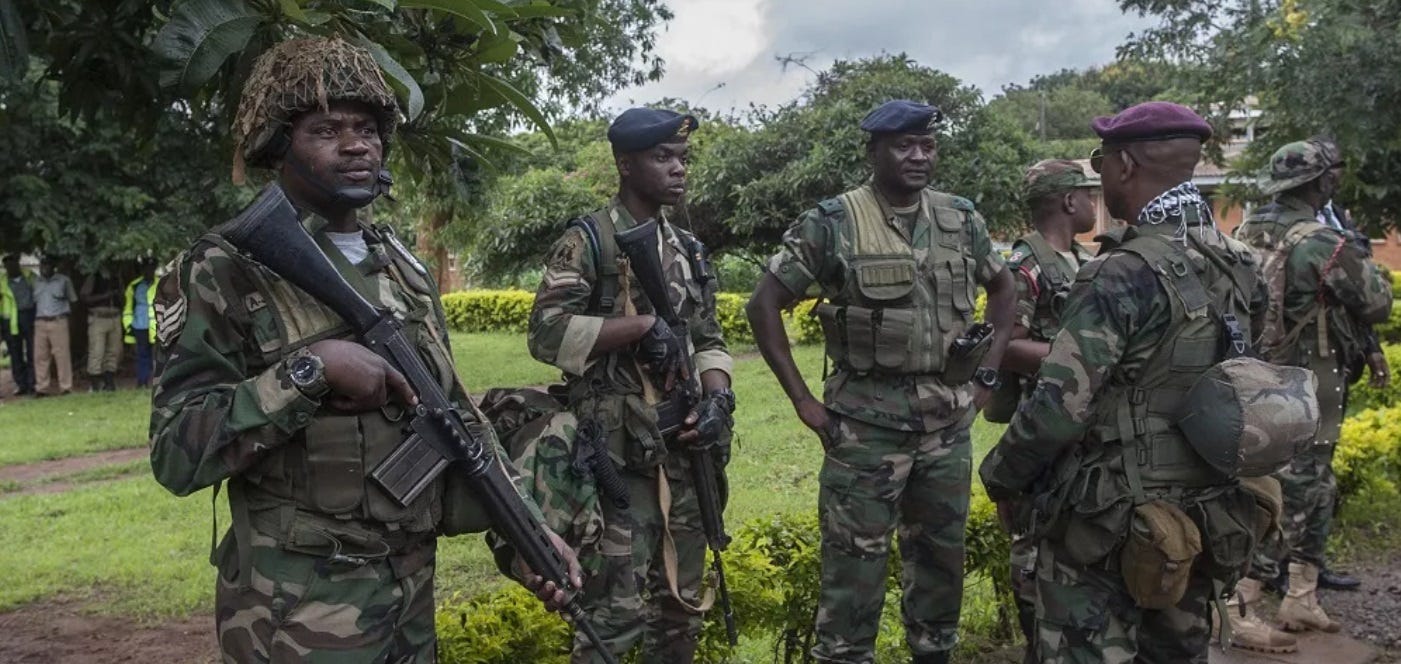
The terrorist threats to Africa are both constant and evolving. Currently the primary focus is on Al-Qaeda and the Islamic State in the Sahel, the Horn of Africa, broad political violence in Central Africa, and belatedly upon the civil war in Sudan. However, the continent has other budding hot spots of violence, such as Mozambique, and, with very little attention to it at all, Malawi.
Earlier this week Malawi’s Public Affairs Committee of Parliament held a forum in Mangochi, which provided a briefing from the National Intelligence Service (NIS). While speaking under the condition of anonymity, they outlined that the NIS has uncovered several terrorist related activities that have taken place within Malawi, including attempts by the Islamic State in the Levant (ISIL) to recruit fighters from Malawi and the surrounding region of East Africa.
One case in particular stands out. In January 2023 a court convicted Mwenyi Abdullah, an Ugandan national, for illegal entry into Malawi along with being in possession of a firearm and ammunition without a permit, and subsequently sentenced him to nine years in prison. What generally has been overlooked is that when Mr. Abdullah was first taken into custody he was in possession of two Islamic State banners.
So how does the small country of Malawi fall into the current analysis of terrorism in Africa? A recent study by the Africa Center for Strategic Studies had some interesting numbers. On the whole, violence caused by Islamist militants throughout the continent has increased by 60% since 2021. The number of events has tripled in a decade and 21,780 deaths add up to a 56% increase from 2021. A point of interest would be the lack of mention of Malawi in this overall study of political violence across Africa.
In October 2023 Malawi unveiled the National Counter Terrorism and Prevention and Violent Extremism Strategy that is projected to be implemented through to 2028 with the support of both the United Nations and the People’s Republic of China.
From a geographical perspective, the proper assessment should be that the threat to Malawi is an external threat rather than an internal threat.
Returning to the briefing earlier this week, the unnamed speaker raised concerns regarding the presence of foreign militants operating in the Mangochi Forest. This area lies close to the Cabo Delgado region in Mozambique, which itself has been home to an insurgency that has raged since 2021. The porosity of borders, the geography, and a limitation of capabilities coupled with scant foregin support makes Malawi a highly vulnerable country to outside militant movements.
What has raised alarms among close observers are the links between the militants in Cabo Delgado and the Allied Democratic Forces in the Democratic Republic of the Congo. These are new ties. The Biden Admnistration imposed sanctions against both groups in March 2021. In late July 2024 the US Treasury would further sanction three individuals for facilitating IS operations in Eastern, Central and Southern Africa. The militants have the goal of linking these groups to conduct operations in a similar way that is playing out in the Sahel.
It is clear that the Islamic State’s sizable Africa branches are seeking to expand their influence across the continent. Recent reporting suggests that such an effort is currently underway in Somalia. Based on the comments that were made by security experts familiar with the region, we are inclined to place Malawi on the list of places where the Islamic State wants to expand their influence. The question is, are they looking to launch attacks against Malawi? Or will it be a haven for recruiting fighters, logistics bases and revenue generation by illicit means? Time will tell, but an overall lack of attention to the country has made it yet another volatile region in Africa.



Thank you for this. I write about terrorism in Africa pretty frequently and even I only kind of vaguely knew it was spreading to threaten Malawi.